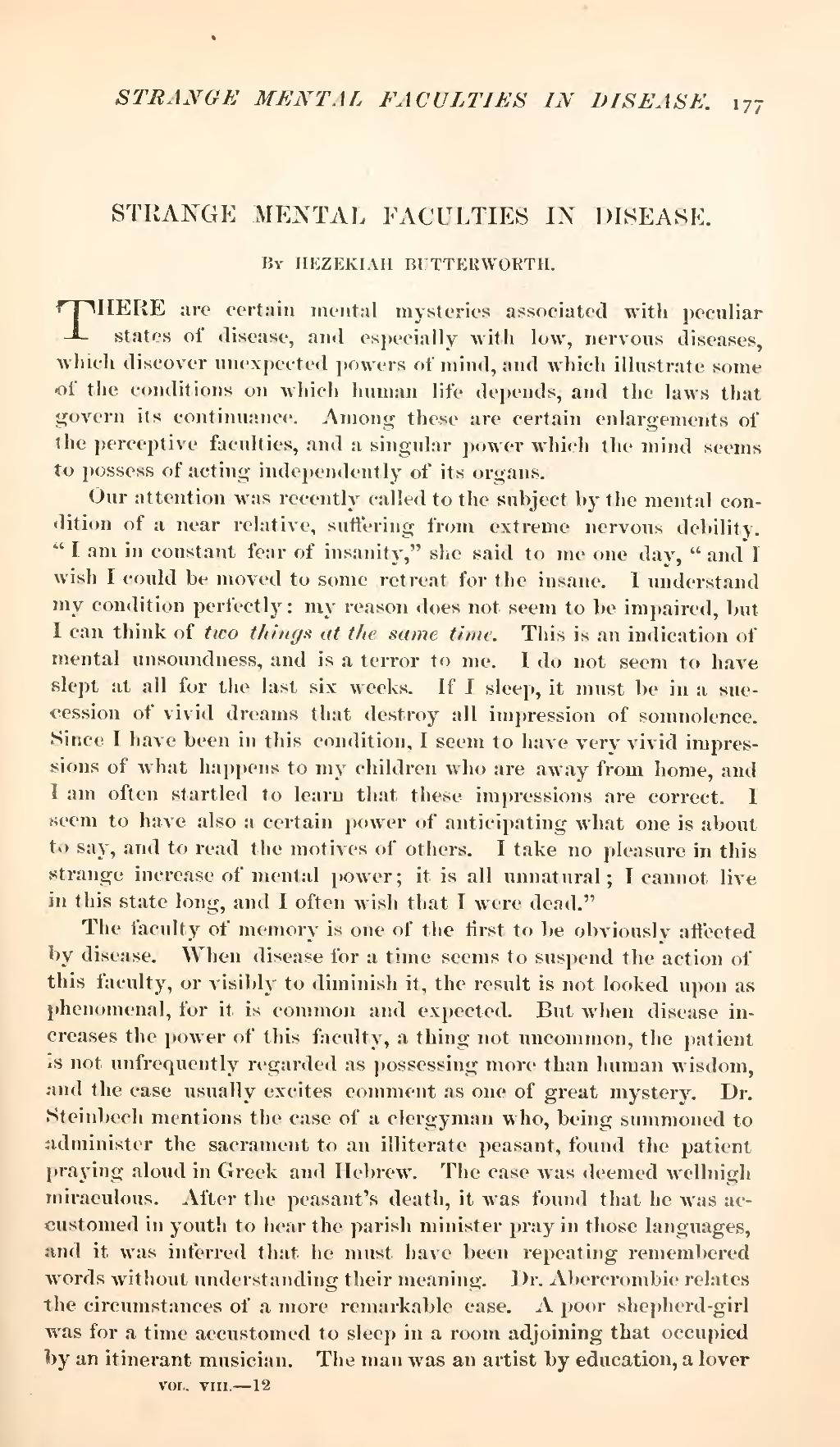| STRANGE MENTAL FACULTIES IN DISEASE. |
By HEZEKIAH BUTTERWORTH.
THERE are certain mental mysteries associated with peculiar states of disease, and especially with low, nervous diseases, which discover unexpected powers of mind, and which illustrate some of the conditions on which human life depends, and the laws that govern its continuance. Among these are certain enlargements of the perceptive faculties, and a singular power which the mind seems to possess of acting independently of its organs.
Our attention was recently called to the subject by the mental condition of a near relative, suffering from extreme nervous debility. "I am in constant fear of insanity," she said to me one day, "and I wish I could be moved to some retreat for the insane. I understand my condition perfectly: my reason does not seem to be impaired, but I can think of two things at the same time. This is an indication of mental unsoundness, and is a terror to me. I do not seem to have slept at all for the last six weeks. If I sleep, it must be in a succession of vivid dreams that destroy all impression of somnolence. Since I have been in this condition, I seem to have very vivid impressions of what happens to my children who are away from home, and I am often startled to learn that these impressions are correct. I seem to have also a certain power of anticipating what one is about to say, and to read the motives of others. I take no pleasure in this strange increase of mental power; it is all unnatural; I cannot live in this state long, and I often wish that I were dead."
The faculty of memory is one of the first to be obviously affected by disease. When disease for a time seems to suspend the action of this faculty, or visibly to diminish it, the result is not looked upon as phenomenal, for it is common and expected. But when disease increases the power of this faculty, a thing not uncommon, the patient is not unfrequently regarded as possessing more than human wisdom, and the case usually excites comment as one of great mystery. Dr. Steinbech mentions the case of a clergyman who, being summoned to administer the sacrament to an illiterate peasant, found the patient praying aloud in Greek and Hebrew. The case was deemed wellnigh miraculous. After the peasant's death, it was found that he was accustomed in youth to hear the parish minister pray in those languages, and it was inferred that he must have been repeating remembered words without understanding their meaning. Dr. Abercrombie relates the circumstances of a more remarkable case. A poor shepherd-girl was for a time accustomed to sleep in a room adjoining that occupied by an itinerant musician. The man was an artist by education, a lover

